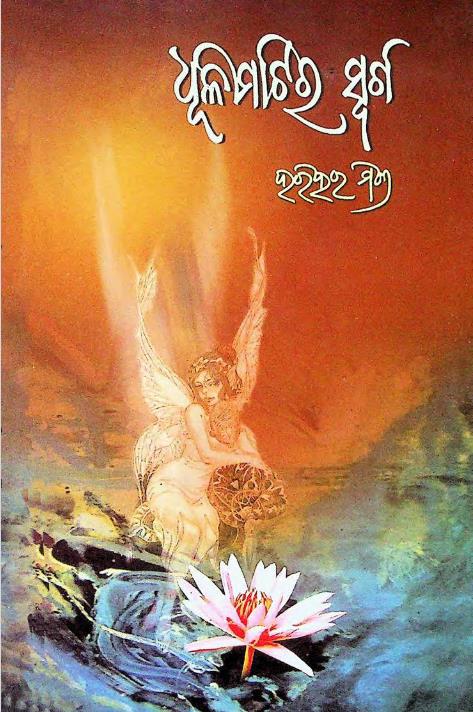Dhulimatira Swarga, a renowned poem penned by the celebrated Odia poet Harihar Misra and published in 2008, is an extraordinary work that captures the essence of life’s myriad experiences through its poignant verses. Misra’s mastery over the Odia language is evident in this poem, as he weaves a tapestry of emotions and reflections that resonate with readers from all walks of life.
The title Dhulimatira Swarga, which translates to “The Heaven of Dust,” immediately evokes a sense of duality. It foregrounds a profound philosophical inquiry into the nature of existence, casting light on the contrast between the divine and the mundane, the ethereal and the earthly. Misra aptly encapsulates the notion that even within the dust—the everyday realities of life—there exists a form of paradise, a hidden value that often goes unnoticed.
The poem is divided into various stanzas, with each sub-poem contributing to the central theme. Misra employs vivid imagery and metaphors that evoke a strong sense of place, grounding the reader in the familiar landscapes of Odisha. He draws inspiration from his surroundings—fields, rivers, and daily life—transforming them into symbols of hope, resilience, and beauty. This grounding in everyday life allows readers to resonate with Misra’s reflections and evoke their memories and experiences.
Throughout Dhulimatira Swarga, Misra navigates through layers of emotional depth. His verses elicit a sense of nostalgia, beckoning readers to reminisce about simpler times—a childhood spent playing in the dust of village roads, the laughter shared with friends, the gentle caress of the breeze. At the same time, he addresses the struggles and pains that accompany growth and change, reflecting on the inevitable passage of time and the transient nature of happiness. Themes of loss and longing are delicately interwoven, making the poem both relatable and profound.
In one of the sub-poems, Misra poetically contrasts the joys of life with the inevitability of sorrow. He urges the reader to find beauty in the struggles and to recognize that the dust—symbolizing life’s difficulties—can also pave the way for growth and transformation. This idea is particularly poignant, as it encourages a deeper appreciation for the complexities of life and invites a sense of acceptance towards its challenges.
Furthermore, Misra’s use of rhythm and rhyme adds a musical quality to the poem, allowing it to flow gracefully. The lyrical nature of his writing amplifies the emotional impact, creating an immersive experience that lingers in the minds of readers long after they’ve turned the last page.
Dhulimatira Swarga is not merely a reflection on the external world but also an exploration of the internal landscape of the human spirit. Through his thoughtful observations, Harihar Misra teaches us that within the dust of our daily lives lies a richness that is often overlooked—a paradise waiting to be discovered through love, connection, and the acknowledgment of both joy and sorrow.
In conclusion, Harihar Misra’s Dhulimatira Swarga stands as a testament to the power of poetry to articulate the complexities of human existence. Its rich imagery, emotional depth, and philosophical reflections make it a remarkable addition to Odia literature, inviting readers to reflect on their own journeys and encouraging them to find beauty and meaning within life’s dust.
Books Info
| Books name | Dhulimatira Swarga/ଧୂଳିମାଟିର ସ୍ୱର୍ଗ |
| Author | Harihar Misra |
| No Of pages | 98 |
| Publisher | Laxman Kumar Sahoo |
| Publication | 2008 |
| Printed At | NA |
| Distributor | NA |

